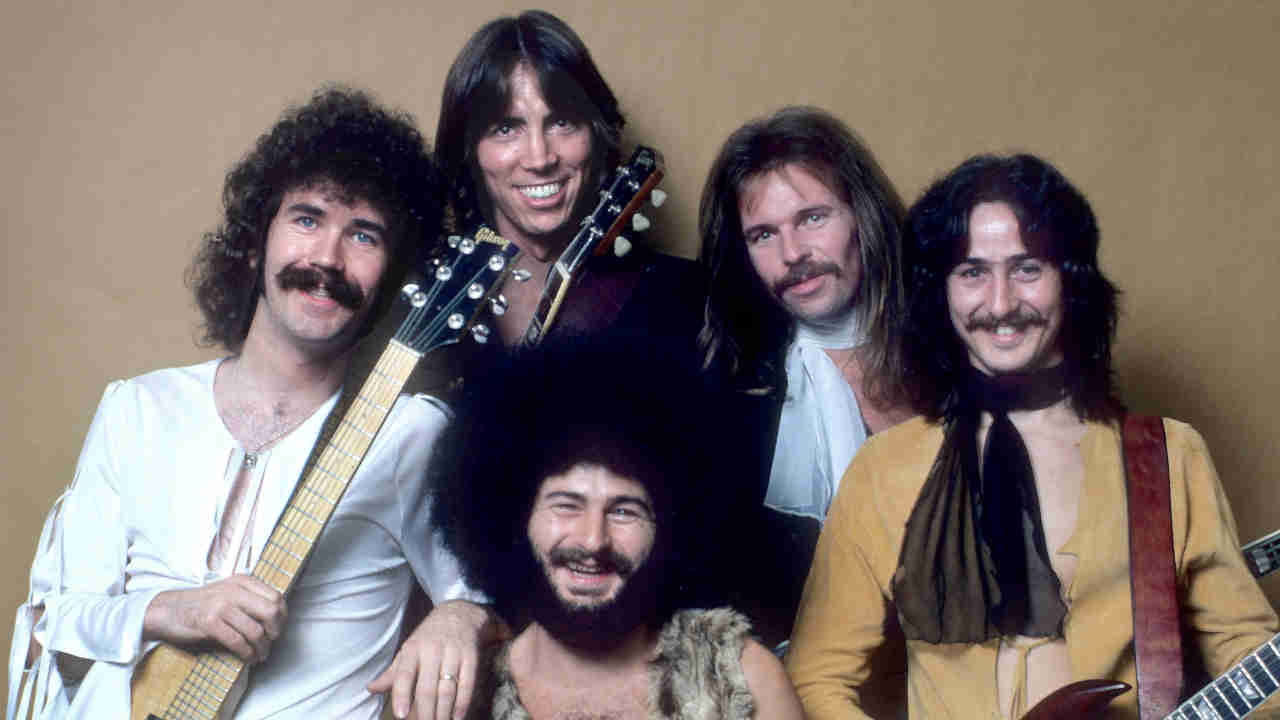"Ten publishers came after us immediately so we pulled it after a week": The story of the great lost Replacements album they never made
Released 17 years after The Replacements broke up and sold for pocket change, the album was a perfect metaphor for Paul Westerberg’s chaotic, brilliant career

Select the newsletters you’d like to receive. Then, add your email to sign up.
You are now subscribed
Your newsletter sign-up was successful
Want to add more newsletters?

Every Friday
Louder
Louder’s weekly newsletter is jam-packed with the team’s personal highlights from the last seven days, including features, breaking news, reviews and tons of juicy exclusives from the world of alternative music.

Every Friday
Classic Rock
The Classic Rock newsletter is an essential read for the discerning rock fan. Every week we bring you the news, reviews and the very best features and interviews from our extensive archive. Written by rock fans for rock fans.

Every Friday
Metal Hammer
For the last four decades Metal Hammer has been the world’s greatest metal magazine. Created by metalheads for metalheads, ‘Hammer takes you behind the scenes, closer to the action, and nearer to the bands that you love the most.

Every Friday
Prog
The Prog newsletter brings you the very best of Prog Magazine and our website, every Friday. We'll deliver you the very latest news from the Prog universe, informative features and archive material from Prog’s impressive vault.
Call it the great lost Replacements record – the one that never was, the one that could have been their crowning achievement. Released as a single forty-nine–cent download in 2008 and yanked from sale within weeks, 49:00 captures everything that made Paul Westerberg and his cohorts legends: the chaos, the hooks, the bratty irreverence, the sense that brilliance and collapse were always just one stumble apart.
For all the years of solo wandering that preceded it, 49:00 sounds like Westerberg finally reuniting in his basement with the ghost of his old band and deciding to play until the cops arrived.

Hatched in Minneapolis, 1979, by four misfits – Westerberg, guitarist Bob Stinson, bassist Tommy Stinson and drummer Chris Mars – The Replacements built their reputation on self-sabotage as much as songwriting, staggering through chaotic shows that were part revelation, part comedy routine, and part drunken implosion.
Their early albums – Sorry Ma, Forgot to Take Out the Trash, Hootenanny, Let It Be – married snide punk rock fury with uncanny melodic instincts. By the mid-1980s, records like Tim and Pleased to Meet Me had cemented their place as underground kings, while also foreshadowing the implosion: Bob Stinson let go in the 80s, Mars out in 1990, and a steady drift toward maturity on Don’t Tell a Soul and All Shook Down.
By 1991, the ‘Mats were finished. Tommy Stinson would later notch an unlikely, albeit respectable second act in Guns N’ Roses, but the breakout was Westerberg, who emerged – no surprise – as a songwriter of staggering depth. His 1993 debut, 14 Songs, proved he could thrive outside the chaos.
Beyond that auspicious start, the solo years mostly charted a decline. Eventually and Suicaine Gratifaction leaned ever deeper into downcast balladry; polished, soft rock meditations that felt as castrated as they were contemplative.
In 2002, Westerberg dropped the two-headed beast of Stereo and Mono – the former a lo-fi, reflective basement confessional under his own name, the latter a snarling garage-rock riot (released under the pseudonym Grandpaboy), bristling with riffs and attitude. Folker followed, softening everything back into the murk. By mid-decade, it looked like Westerberg might drift into elder statesman irrelevance, a mature, adult rock songsmith remembered more for his band’s ragged legacy rather than any new mischief. Then came 49:00.
Sign up below to get the latest from Classic Rock, plus exclusive special offers, direct to your inbox!
Where his previous albums had been cautious or dour, 2008’s 49:00 was a Molotov cocktail: anti-commercial, jittery, subversive, hilarious, and – crucially – packed with stupidly addictive material. Sold for pocket change, presented as a single 43:55 track, it gleefully sabotaged the marketplace while demanding you hear it whole. 5:05, a single released a month later, completed the titular total.
Highlights like Something in My Life Is Missing feel like should-be classics, bursting with chiming chords and sing-along ache. Devil Raised a Good Boy slams with Tim-era swagger, reminding you how dangerous Westerberg can sound when he lets his guitar off the leash. Around these anchor points swirl sketches like Everyone’s Stupid, Visitor’s Day, With Or Without Her (Kentucky Risin’) and You’re My Girl – all unofficially titled by fans, all tantalising in their reckless fragments of greatness.
And that’s the maddening part: 49:00 is stacked with unrealised brilliance, seductive ideas that flare up and vanish just as they hit their stride. In another universe, you can picture these shards tossed into a dingy rehearsal space, the old gang hammering them into shape with Tommy Stinson’s bass thump and Chris Mars’s swing – but that universe closed its doors in 1991.
By 2008, the Replacements were long gone, their ashes scattered, and there was no band left to carry these songs into daylight. Which is why 49:00 feels like a mirage – the greatest Replacements album never recorded, arriving seventeen years too late, conjured by one man chasing the ghost of the only band that could have made it whole.
There’s an incisive twist here, too: by disguising dozens of ideas as one unskippable track, Westerberg built the world’s first great anti-playlist. At the dawn of the shuffle era, he dared you to sit still, to absorb the junkyard genius in sequence. It wasn’t just contrarian; it was prophetic, forcing fragmented ears into long-form immersion while sneering at the notion of radio singles. Fans later carved it up into approximations of standalone tracks on YouTube, but he made them work for it.
49:00 dropped on July 21, 2008, briefly topped Amazon’s digital chart, and was yanked within weeks, ostensibly due to its closing medley – Westerberg ripping through a neck-whipping stream of classic rock choruses like a drunk jukebox.
“Ten publishers came after us immediately,” he later explained, “'cause I used all these snippets of songs that I recorded. It was either pay up or pull the thing. So we pulled it after a week...” By then, its brief, contentious history was cemented.
49:00 ends abruptly, midsentence, as if someone pulled the plug mid-song – a perfect metaphor for Westerberg’s career: brilliance, sabotage, laughter, and loss in equal measure. And that’s the punchline. 49:00 isn’t just a weird basement experiment; it’s the final Replacements album, cut alone by the guy who mattered most. A haunted jukebox still blaring, even after the bar lights come up.
You can find it on Westerberg’s SoundCloud along with the following note: “I tried to release this in 2008 and had a lot of problems. That being said I hope you enjoy it.”
Hailing from San Diego, California, Joe Daly is an award-winning music journalist with over thirty years experience. Since 2010, Joe has been a regular contributor for Metal Hammer, penning cover features, news stories, album reviews and other content. Joe also writes for Classic Rock, Bass Player, Men’s Health and Outburn magazines. He has served as Music Editor for several online outlets and he has been a contributor for SPIN, the BBC and a frequent guest on several podcasts. When he’s not serenading his neighbours with black metal, Joe enjoys playing hockey, beating on his bass and fawning over his dogs.
You must confirm your public display name before commenting
Please logout and then login again, you will then be prompted to enter your display name.

